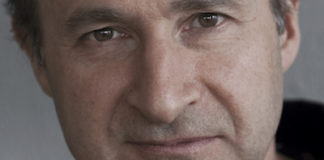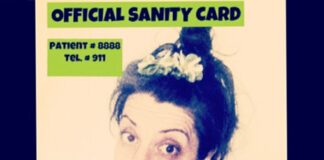Tag: Schizophrenia
Eating Oily Fish While Pregnant Could Prevent Schizophrenia
From The Conversation: According to a recent study from Japan, pregnant mice that are deprived of an essential fatty acid, called docosahexaenoic acid (DHA), are...
Researchers Question Add-On Treatment for ‘Schizophrenia’
A common practice when antipsychotics are found to be ineffective for schizophrenia is to prescribe a second, additional psychoactive medication. Now, a new study suggests that this practice is not supported by the research.
The Concept of Schizophrenia is Coming to an End – Here’s...
From The Conversation: Many researchers are beginning to acknowledge that the concept of "schizophrenia" as a discrete, hopeless, and deteriorating brain disease does not exist. In...
Turns out Action Video Games Really can Harm Your Brain
From Global News: According to a recent Montreal study, habitually playing action video games can lead to grey matter loss in the hippocampus, which is...
Married Individuals with Schizophrenia Show Better Outcomes, Study Finds
14-year study of a rural sample in China shows those who were married had higher rates of remission from schizophrenia.
Patients With Schizophrenia Show Better Work Functioning Off Antipsychotics
20-year follow-up study finds that after four years, patients not prescribed antipsychotics have significantly better work functioning.
Jim van Os: Rethinking Biological Psychiatry
Psychiatrist Jim van Os is Chairman of the Department of Psychiatry and Psychology at Maastricht University Medical Centre, Maastricht, The Netherlands. He challenges current diagnostic conceptions of schizophrenia and other mental disorders, and offers a vision for creating a new paradigm of mental health care.
Kermit Cole: Dialogical Approaches to Extreme States
Kermit Cole tells of his experiences of supporting those in extreme states and his thoughts on Open Dialogue and dialogical approaches in general.
Remains of Missing 24-Year-Old Dad Found in Coast Guard Boat
From Yahoo! News: Nine months ago, Matt Amsler, a 24-year-old father, mysteriously disappeared after undergoing a bad reaction to antipsychotics. His body has been found...
Half of First-Episode Patients Respond to Antipsychotics
No placebo controlled trials provide evidence of antipsychotics in first-episode psychosis.
Schizophrenia’s Tangled Roots
From Sapiens: Researchers are increasingly recognizing the role that social and environmental factors, including childhood abuse, stressful events, and poverty, play in the development of...
Will Hall: A Harm Reduction Approach to Mental Health and Wellbeing
Will is a mental health advocate, counsellor, writer, and teacher. Will advocates the recovery approach to mental illness and is recognised internationally as an innovator in the treatment and social response to psychosis.
“Heartbeats of Hope: The Empowerment Way to Recover” – A Book...
We seldom have a chance to hear from someone who combines the perspective of a longtime psychiatric survivor and activist with that of being a psychiatrist. I disagreed with only one significant point — that a person does not have to be off all medications to show “complete recovery” from “mental illness.”
Large Study Confirms Elevated Risk of Diabetes When Prescribed Antipsychotics
A large longitudinal study finds once more that being prescribed antipsychotics significantly increases the risk of diabetes.
Schizophrenia Deconstructed
After a few weeks it became clear to me the complete lack of comprehension that I faced as a person claiming to have been cured of psychosis. Being a schizophrenic claiming to no longer suffer from schizophrenia only made me seem more schizophrenic due to the current culture of psychiatry.
Breaking Through the Wall of Schizophrenia
A good relationship can begin to puncture a hole through the wall of disconnection. The goal is to help a person break out of the isolation and private world that trauma has created and re-engage with a public world—culturally, emotionally and in a way that has personal meaning.
‘Mad’ Psychologist Speaks Out
Yet again I find myself in the painful, ridiculous and uncomfortable position of having to try to do my best to repair the extensive damage which is being done to vulnerable survivors of child abuse by the system. Yet again I am powerless to do much about it.
In Patients Diagnosed with Schizophrenia, Depression Linked to More Accurate Assessments
Participants diagnosed with schizophrenia with higher levels of self-reported depression have more accurate assessments of abilities.
Physical Inactivity Associated with Worse Cognitive Functioning in Psychosis
Higher levels of sedentary behavior are associated with poorer cognitive functioning in patients diagnosed with schizophrenia.
Psychiatric Medications Heighten Risk for Major Bone Fractures
Important assessment tool found to underestimate the risk for fracture in patients on psychiatric medication.
Study Highlights Importance of Social Interactions in Psychosis Recovery
Study finds frequency of social interactions predicts long-term remission in first-episode psychosis.
Study Connects Environmental Risk Factors and Psychosis
A meta-analysis of known risk factors for psychosis finds elevated risk with the presence of childhood trauma, adverse life events, and affective dysfunction.
Why I Don’t Like the Idea that Mental Disorder is a...
What we need to try and understand extreme and unusual states of being are not the specialised methods of natural science. In contrast, it is the ways in which we understand ordinary, everyday behaviour that can help to reveal the nature and meaning of madness.
Nutrient Supplementation Improves Outcomes for Patients Diagnosed with Schizophrenia
A review article and meta-analysis of 18 articles published in the journal of Psychological Medicine reported effects of vitamin and/or mineral supplements on psychiatric symptoms in people diagnosed with schizophrenia. The study provides evidence of the beneficial effects of taking certain vitamins and minerals for improving symptoms associated with schizophrenia.
More Experience Hallucinations Than Previously Thought
From RTÉ: A recent study found that over 4 percent of all people have experienced hallucinations, which is far more than had previously been thought. Contrary...

































